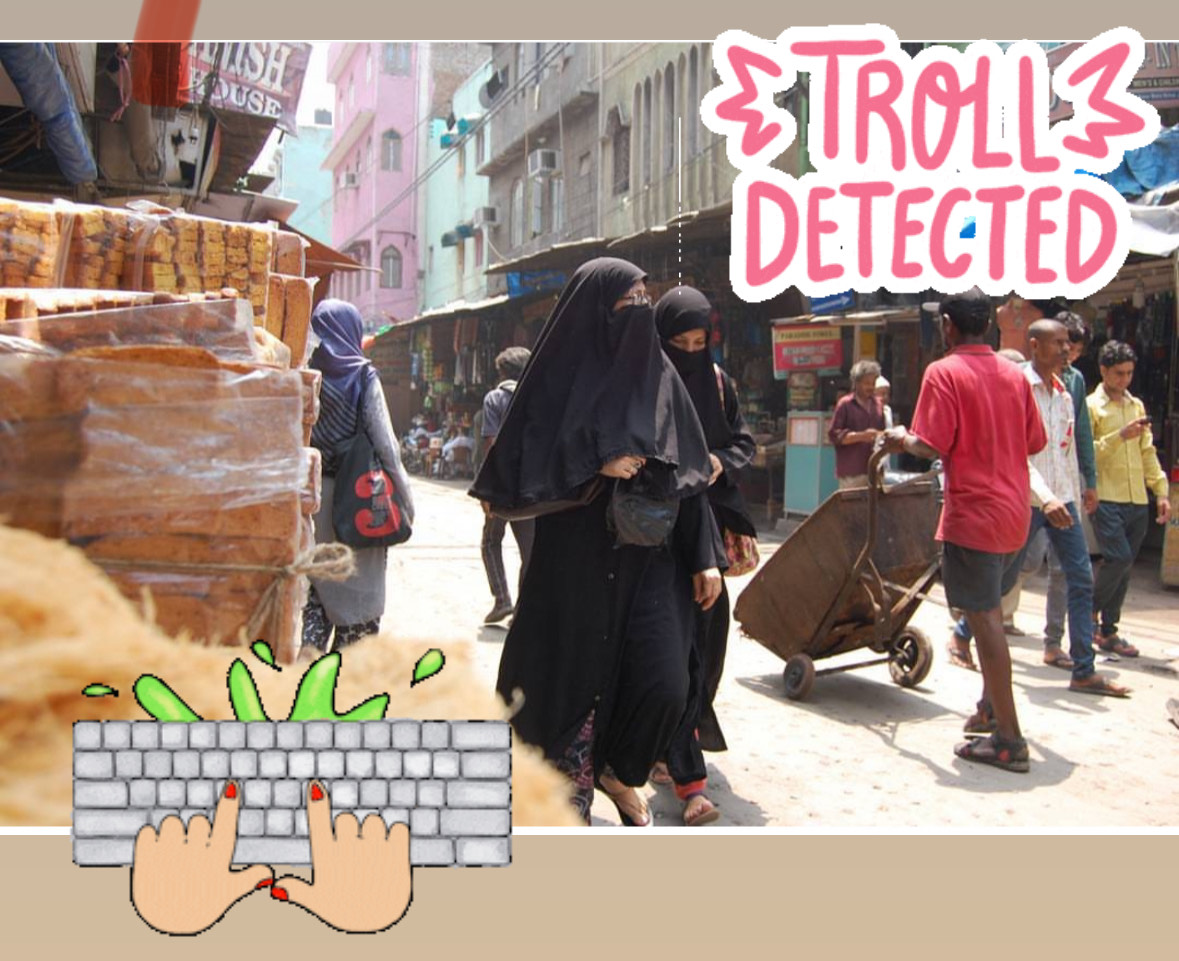
By Sumaiya Ali, TwoCircles.net
New Delhi: As our lives increasingly shift online, the risks of cybercrimes — such as stalking, trolling, harassment and cyber bullying — have surged. In today’s political climate, minorities, particularly Muslim women, seem to have become frequent targets of these online attacks. This abuse reflects a growing polarisation within the Indian society, raising urgent concerns about individual safety in virtual spaces.
Many believe Islamophobia is no longer confined to office corridors or public gatherings; it has permeated the online realm, where anonymity emboldens perpetrators to act without accountability. Muslim women, often perceived as easy targets, have faced harassment that exploits their religious identity.
In July 2021, photos of over 80 Muslim women, many of whom are journalists or outspoken on social issues, were taken from their social media accounts and featured on a website called ‘Sulli Deals’, where they were subjected to a fake online auction. The term ‘Sulli’ is a derogatory label allegedly wielded by right-wing trolls.
In a similar act of harassment, an app named ‘Bulli Bai’ surfaced, uploading images of over 100 Muslim women and labeling them as ‘Bulli Bai’ (maid) of the day with a price tag. This app was clearly designed as a tool for intimidation and hatred, targeting Muslim women to instill fear. The creators of these hate platforms are alleged to be part of organised hate groups that systematically target individuals who express dissent or support for marginalised communities.
Boom Fact Check highlights an Instagram account, Paltu Paltan, which has amassed over 164,000 followers and specialises in targeting minorities while spreading misinformation.
This story was originally published in twocircles.net. Read the full story here.

